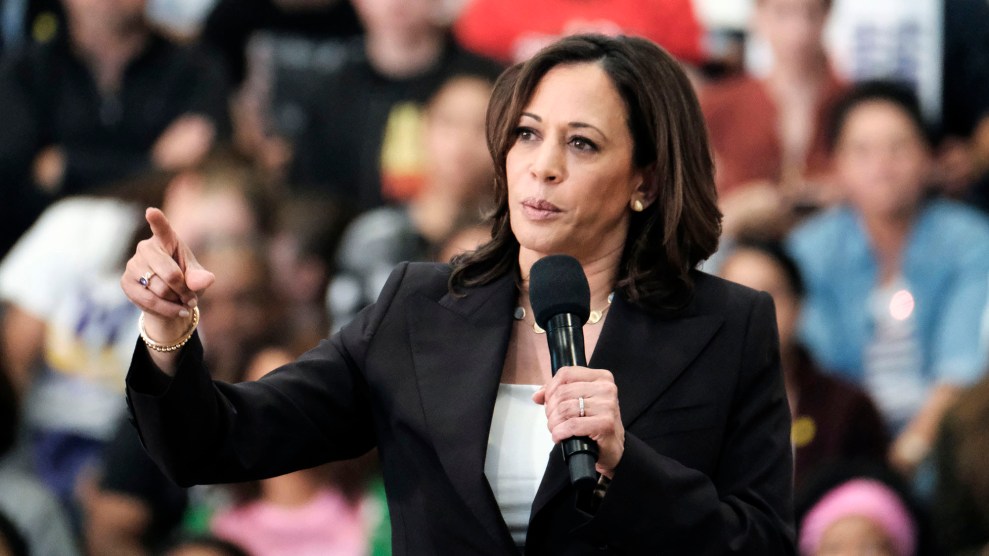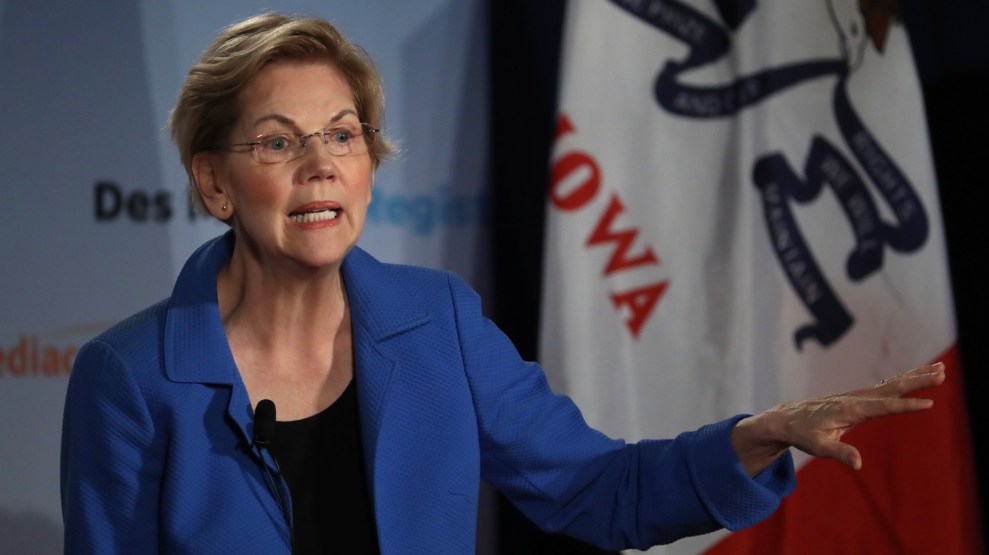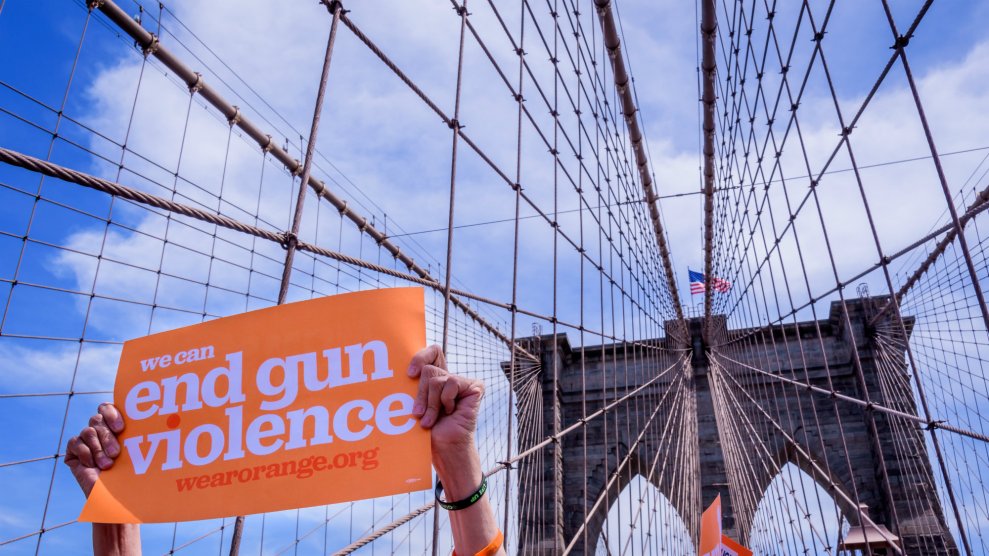
Richard Vogel/AP
In the wake of the latest deadly mass shootings—in Texas, Ohio, and California—2020 Democratic presidential candidates are ramping up their plans to curb the country’s gun violence problem. And now, Kamala Harris (D-Calif.) has gone a step further with a detailed plan that connects gun violence to combatting domestic terrorism and “violent hate.”
“We have had this growing threat from this nexus between gun violence and hatred,” says Peter Ambler, executive director of the gun control organization Giffords. “What Senator Harris is proposing has a specific purpose.”
The proposal, which was released Wednesday afternoon shortly after the presidential candidate made her obligatory appearance at the Iowa State Fair, builds on her previously announced pledges to ban the importation of AR-15-style assault weapons and sign an executive order to mandate near-universal background checks—a suggestion that infuriated the National Rifle Association.
The plan Harris released today goes further and proposes a de facto federal Extreme Risk Protection Order (ERPO) law—often known as “red flag laws”—that would target people who are suspected of domestic terrorism or might commit a hate crime. She intends to “empower federal courts” to issue a “Domestic Terrorism Prevention Order” for law enforcement authorities to temporarily seize the firearms “of a suspected terrorist or individual who may imminently perpetrate a hate crime.” With a commitment of $2 billion over 10 years to “investigate, disrupt, and prosecute domestic terrorists,” this plan reverses Trump’s decision to disband a group of Department of Homeland Security intelligence analysts focused on domestic terrorism.
The proposal builds on current ERPO laws, in place in 17 states and the District of Columbia, that allow law enforcement to temporarily confiscate the guns of anyone who might pose a risk to themselves or others. Ambler says Harris’ campaign consulted with Giffords on developing her domestic terrorism plan, particularly on her proposal for federal ERPO laws. Though the laws regarding who can petition a judge to issue an ERPO vary by state—in most cases it’s only a family member or a law enforcement official, but in some areas school officials or coworkers are allowed to file the petition—it’s not clearly defined if online extremism is a valid reason for an ERPO, as Mother Jones reported last week:
The First Amendment prevents the government from prohibiting hate speech “unless it’s used in the narrow context of a true threat of violence,” says Clay Calvert, a journalism professor at the University of Florida and the director of the school’s First Amendment Project. “The more specific the [online] posts are, the more permissible it is to issue one of these orders against a person and remove their guns.” Calvert predicts that the more red flag laws are used, the more likely it is that they will be challenged in court by those who see them as a violation of both the First and Second Amendments.
Still, gun control advocates argue that authorities should be able to take online extremism into consideration. “Hate speech, threats—those things can be considered overall to determine if you’re posing violence to yourself or others,” says Horwitz, of the Coalition to Stop Gun Violence. “You can’t criminalize speech, but here, you’re able to do something and intervene through the civil protection order.”
Harris’ plan makes it clear that a federal judge could prevent individuals who engage in online extremism—much like the El Paso shooter and other recent perpetrators of extreme violence—from legally accessing a firearm. It also expands the National Counterterrorism Center’s purview, allowing it to immediately “address the threat of global white-nationalist terrorism, and seek authority to include domestic terrorism in its mission.”
The plan also increases her previously announced support for tightening the laws around background checks by pledging to take executive action to require online retailers, like ArmsList.com, to perform background checks for the sale of any firearm. Nearly a quarter of all gun purchases in the US occur without a background check because of legal loophole that doesn’t require online gun retailers to perform them, which is how the Dayton shooter obtained the weapon he used in the August 4 massacre.
In outlining her plan, Harris, a former San Francisco prosecutor and California’s attorney general, directly blamed President Donald Trump for fueling the hate-based violence that has plagued the country in recent years. In a press release, Harris’ campaign accuses Trump of weakening gun laws, cozying up with the NRA, and playing “coy” with white supremacists. “He’s disgraced the office he holds,” the release states, “and while he didn’t pull a trigger, he’s been tweeting out the ammunition.”
















